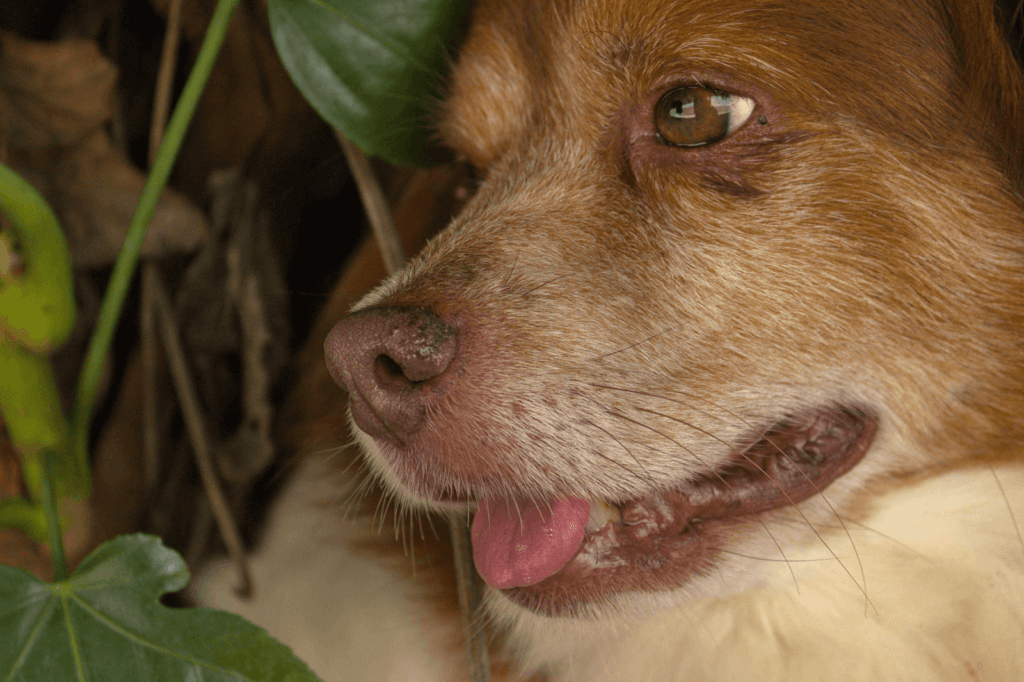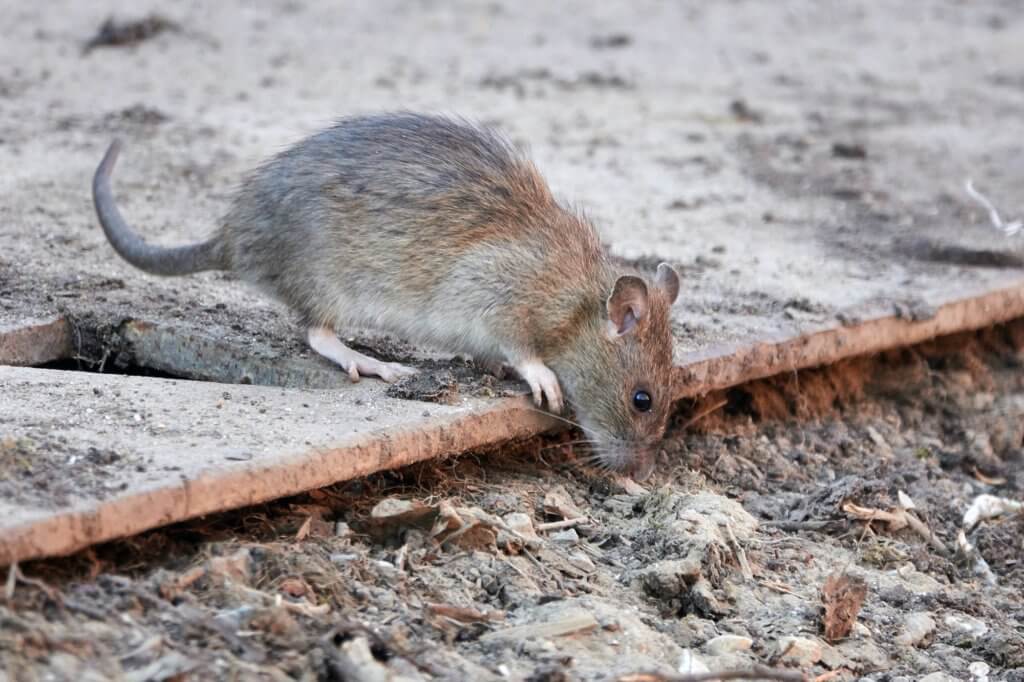No one wants rats in their house, but a rat is not poisonous to dogs unless, of course, it has ingested rat poisoning before your dog gets a hold of it. Here is a guide to rat poisoning in dogs from Gunter Pest & Lawn.
Rat poisoning, also known as a rodenticide, will come in a variety of forms and colors. Blocks, pellets, gels, grains, granules, and liquids are all forms of commercial rat poisoning that can be purchased to rid the properties of pesky rats.
Can Rat Poisoning Harm My Dog?

Yes. No rat poison is to be considered dog safe. Rat poisons are created to specifically kill rats, however, the ingredients and chemicals contained within are highly toxic and can cause damage to your dog’s health, perhaps even leading to death.
One thing to keep in mind is that rat poisoning is purposely palatable to attract rats, and as such, may also be a tasty treat for your dog. Consider that many poisonings have a sugar or grain base for taste.
These poisons are generally blue, pink, teal, or green.
Related: 5 Warning Signs Of Rodents In Winter
What Are the Consequences Of My Dog Ingesting Rat Poisoning?
Various kinds of rat poisons will affect your pooch differently depending on the specific poison they contain.
Many rat poisons contain an anticoagulant chemical, which will impede blood from clotting. This can eventually lead to internal bleeding.
Active ingredients found in rat poisoning include bromadiolone, brodifacoum, diphacinone, chlorophacinone, or warfarin.
A toxin used frequently is cholecalciferol, also known as vitamin D. With extreme doses, it will do damage to kidneys or create cardiac problems. Leading to kidney failure.
Bromethalin can be the cause of brain swelling because it increases the amount of sodium in cells. As the sodium attracts increasing amounts of water, it causes cells to swell and die off. It can kill your dog.
A common ingredient, alpha chloralose will wreak havoc on the central nervous system by depressing it. Aluminum or zinc phosphides will introduce phosphine gas into your dog’s stomach but are generally only used by infestation professionals.

One of the problems of treating a dog for rat poison is that each of these chemicals may require a different treatment. It is paramount that you know which rat poison your dog may have ingested so your veterinarian can administer the correct antidote.
How Will I Know If My Dog Ate Poison?
Again, depending on the poison, your dog may react differently to poisoning depending on the chemical used in the poison and symptoms will vary.
If your dog has ingested a rodenticide or anticoagulant poison, they risk bleeding internally. This can be fatal, so it requires rapid intervention. Symptoms may not be noticeable until several days after your dog has ingested the poison. If you suspect your dog has eaten poison, it should be treated even without apparent symptoms.
Signs To Watch For In The Event Of Internal Bleeding Are:
- Nose bleeds
- Pale gums or gums that bleed
- Bleeding during defecation or urination
- Blood in stools
- Lethargy
- Weakness
- Vomiting
- Bad breath
- Coughing up blood
- Respiratory difficulty
- Bruising
How Much Rat Poison Is Lethal In A Dog?
Whether your dog has ingested enough poison to kill it will depend on the kind of poison and the quantity. Keep in mind that some of these poisons have been formulated to work slowly after repeated ingestion. Other poisons will work immediately after a single dose.

If you suspect that your dog has eaten even a tiny dose, contact your veterinarian immediately or your local poison control center.
Read More: How To Get Rid Of Rats In Your Home: Rat Removal 101
I Suspect My Dog Has Eaten Rat Poisoning. What Should I Do?
As soon as you suspect your pooch has ingested rat poison, immediately call your veterinarian, your local poison control center, or the nearest veterinary emergency service.
This is not an emergency that can wait, it needs immediate treatment. Rapid intervention can be the difference between your dog dying or surviving.
You will need to furnish as much information as possible when you call, as this will help your vet decide the best treatment and decide if you need to do something before bringing your pooch in.
Prepare This Information Quickly Before Calling:
- Dog breed, the weight of your dog, and age
- The date and time of poison ingestion or exposure
- The name of the rat poison (manufacturer and brand)
- The ingredients the poison contains, amounts, and concentrations
- Size of the package of poisoning
- Approximately how much of the poison the dog has ingested. (What’s missing from the package or bottle?)
When you transport your dog to the vet or pet emergency room in Kansas City, make sure to take the package of rat poisoning with you.
Do not induce vomiting in your dog unless you have been instructed to do so by your veterinarian.
What Is The Treatment For Rat Poisoning In Canines?
Initially, your veterinarian may induce vomiting. He or she may also administer orally some activated charcoal because this will prevent the chemicals from being absorbed into the gastrointestinal tract.
Your vet may need to run tests depending on how much time has passed between when the dog ingested poison and you arrived at your vet’s office. This may be done to evaluate toxins that have already been introduced into the bloodstream.
Time and rapid intervention are everything in a case of poisoning. Unfortunately, if your pooch is already showing signs of poisoning, the prognosis will be poor.
A Final Thought: Prevention Is The Best Medicine
Keep rat poisoning out of the reach of your pets. If possible don’t keep any at all on your property and enlist the help of professionals if you have a rodent problem. Emergencies like your dog ingesting rat poison are a reason why it is sensible to have pet insurance for your pet.

It’s also important to supervise your dog when out and about. It would be unfortunate if your pet ate poison put out by neighbors. A fenced-in area or a leash will keep the pooch safe.
If you must use rat poison, do not do so in an area your dog has access to. The best option is to have professionals do the work for you and insist on pet-safe alternatives.
If you think you have a rat problem, click here to find out more, or give us a call on 816-444-2847.
At Gunter Pest & Lawn, our whole-house rodent treatments are $125 and include a full inspection, an analysis of suggested entry points to patch, and a strategic approach to rodent bait installation. With a guide to rat poisoning in dogs, we hope you never have any issues.








